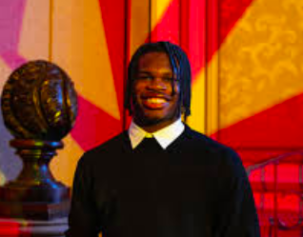These days, artists are very vocal about having control over their music masters, even if it is just to sell them to the highest bidder. But there is one artist who helped revolutionize the music industry through his steadfast determination to own his work and maintain creative freedom.

Prince Rogers Nelson, simply known as Prince, even went as far as disowning his name instead using a symbol. He also scrawled the word “slave” on one side of his face since he said he felt artists were “slaves” to the record company that reaped the majority of profits from artists.
Prince’s Battle for Creative Freedom
In the early 1990s, Prince was entangled in a legal battle with his former label, Warner Bros. Records, over ownership rights and creative control. Prince’s 1992 contract with the label did give him substantial financial benefits, such as a $10 million advance per album for six albums and 25% of royalties, but he believed that artists should have complete control over their creations, according to Billboard.
“He drew attention to the issue of artists controlling their own destiny, and he furthered the message as much or more than anyone,” Gary Stiffelman, Prince’s attorney from 1988 to 1994, said according to Billboard.
The Slave & the Symbol
As the legal dispute escalated, Prince, who launched his Paisley Park Records through his Warner deal, resorted to making a bold and personal statement. He wrote the word “slave” on his face.
The host of the podcast “Who Was Prince?” music journalist Touré recalled an interview with the musician in which Prince said he thought it was outrageous for an artist to create albums and consistently be on tour and only receive $7 million of an estimated $140 million grossed from the tour.
“Imagine yourself sitting in a room with the biggest of the big in the recording industry, and you have ‘slave’ written on your face. That changes the entire conversation,” Prince had explained, according to Touré. “You know what they think of us? They say, ‘It makes it real hard to talk to you with that on your face.’ Why? And it got real quiet. They don’t want to get into all that. Adding that language into the conversation worked perfectly. It changed the dynamic of the conversation.”
Prince also transformed his name into an unpronounceable symbol, combining male and female anatomical signs. He became known as “The Artist Formerly Known as Prince.”
Finally, in 2014, Warner Bros. gave Prince his masters for the work he recorded with them in a deal requiring two new albums.
In 2015, he took on streaming services. He pulled his music from all streaming platforms–except Jay-Z founded Tidal — and demanded more revenue share.
Prince’s Estate Sells
After Prince’s untimely death in 2016 at the age of 57, there was a family battle over his $156 million estate. Prince died without a will.
In 2022, a judge in Minnesota’s First Judicial District issued an order that splits the cash in Prince’s estate evenly between two legal entities, Prince Legacy LLC and Prince OAT Holdings LLC, People reported.
Prince Legacy consists of interests previously held by three of Prince’s half-siblings, Sharon Nelson, John Nelson, and Norrine Nelson, as well as advisors L. Londell McMillan and Charles Spicer. Meanwhile, Prince OAT Holdings LLC, which is owned by music publishing company Primary Wave, consists of interests once held by Tyka Nelson, Omarr Baker, and Alfred Jackson, according to the court documents.
But prior to this decision, in 2021, ironically after Prince’s hard-fought battle for creative control, three of his siblings sold their inheritance in the estate to Primary Wave. This sale included Prince’s name, likeness, royalties, publishing rights, and the iconic Paisley Park studios.




